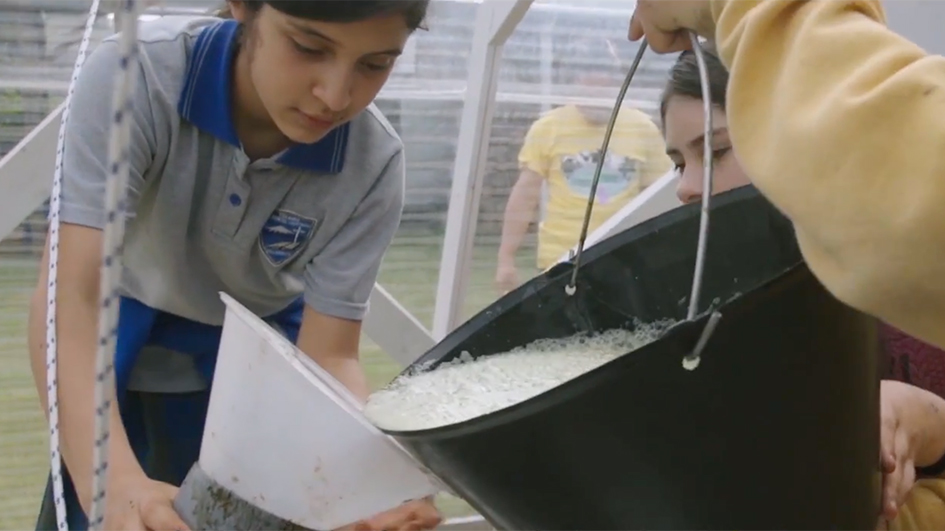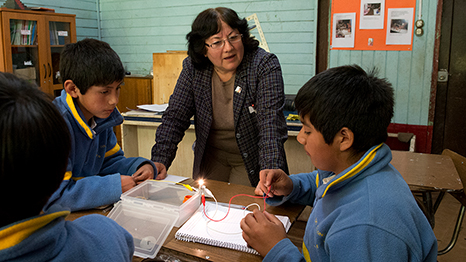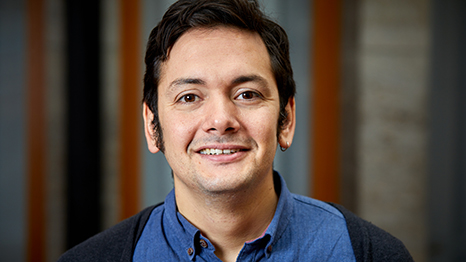Experimento in Chile
Experiments that pay off

Program
Experimento is Siemens Stiftung’s international STEM education program. It is based on the principle of inquiry-based learning, in which students actively shape their individual learning processes. The focus is on independent experimentation, research and understanding of phenomena in the subject areas of energy, environment and health.
Overview
Overview of Experimento in Chile
- Cooperation began in 2012
- Experimento implemented in Antofagasta, Arica/Parinacota, the Santiago de Chile metropolitan region, Valparaíso, Easter Island, Auracanía, and Región de los Lagos
- Integration with university teacher training programs
- Focus on early childhood education and on primary schools
- Linking to national programs and subjects creates synergy
- Topics of sustainability and climate are well-represented
- Establishment of a “STEM and early childhood education” round table
- Advanced training for around 3,500 educators across the country so far
- Around 280,000* children reached
- Experimento is part of the education ministry’s continuing education program
* The number assumes that every instructed kindergarten or elementary school teacher shares the knowledge 5 times with one group or class, and a subject teacher shares it 5 times with two classes.

»Do you know what air sounds like?«
Country-specific developments
- Specific curricular adaptation of Experimento I 4+ and I 8+Pontificia Universidad Cátolica de Chile (PUC Campus Villarrica) and Fundación Chile created adaptations of Experimento I 4+ and I 8+ that are in line with the national curriculum.
- ECBI-ExperimentoSince 2014, Experimento has gradually been integrated into the ECBI (Enseñanza de la ciencia basada en la indagación) at Universidad de Chile. It promotes inquiry-based learning in science and technology lessons and is part of continuing education for teachers.
- New modules for indigenous knowledge and sustainabilityEducation for sustainable development is an important issue at Pontificia Universidad Cátolica de Chile. Using Experimento as a starting point, the university is creating new modules that incorporate indigenous knowledge into the teaching materials and experiments. These include the use of medicinal herbs, understanding weather phenomena, or processes such as fermentation or dyeing.

»There’s a culture of respect for nature and one’s own roots that must be preserved.«
Impact
Proving Experimento's impact
In 2013, the foundation Fundación Chile evaluated the impact of Experimento on school instruction. The review showed that teachers were able to integrate the program into their lessons in a meaningful way. Students also improved their learning behaviors and their understanding of scientific relationships. Inquiry-based learning and group experimentation had a positive impact on skills such as team spirit, communication, empathy, and solution-oriented action.
Contact
Head of Siemens Stiftung Regional Office
Ulrike Wahl
ulrike.wahl@siemens-stiftung.org
+56 9 61 76 70 41





